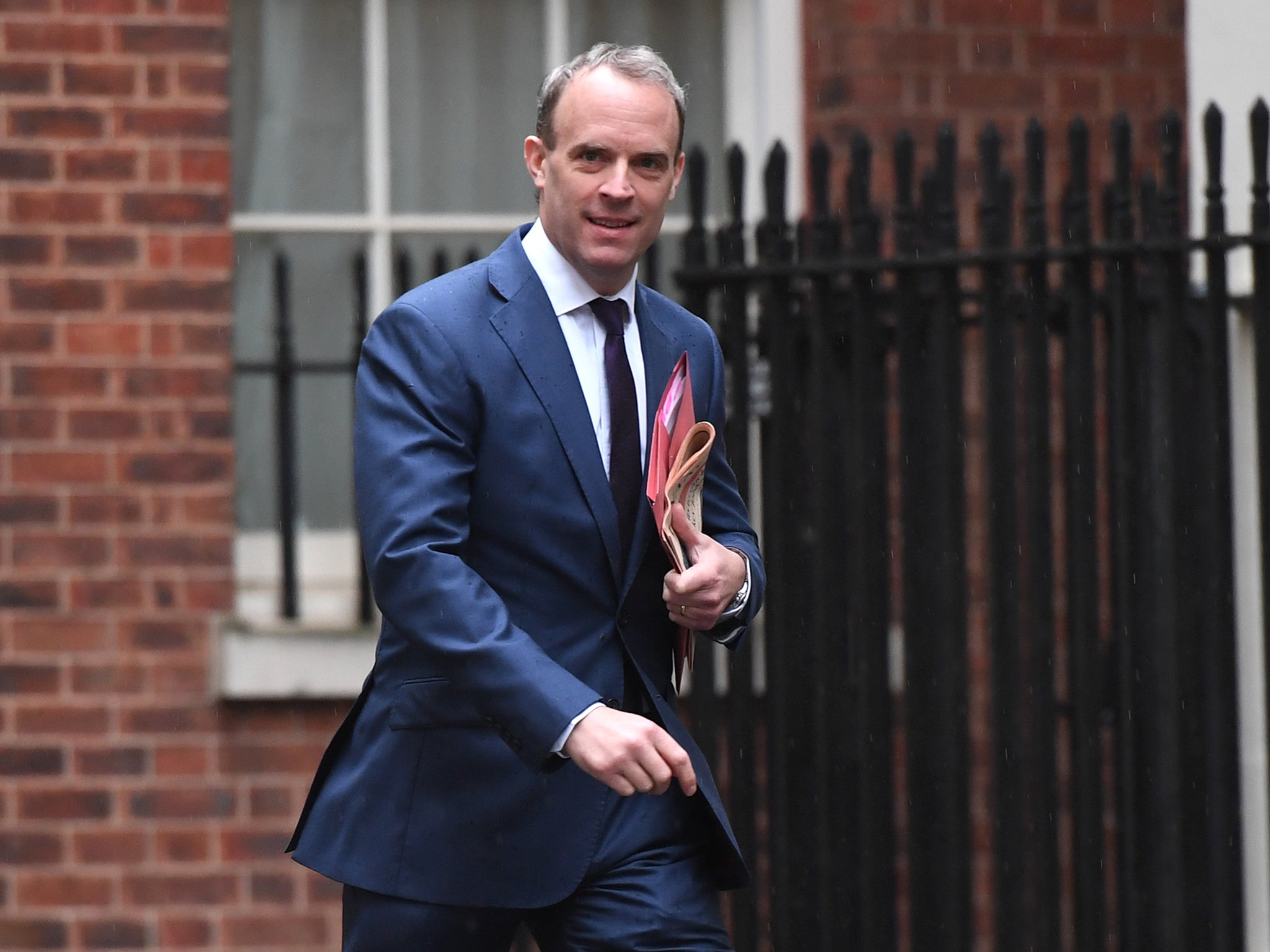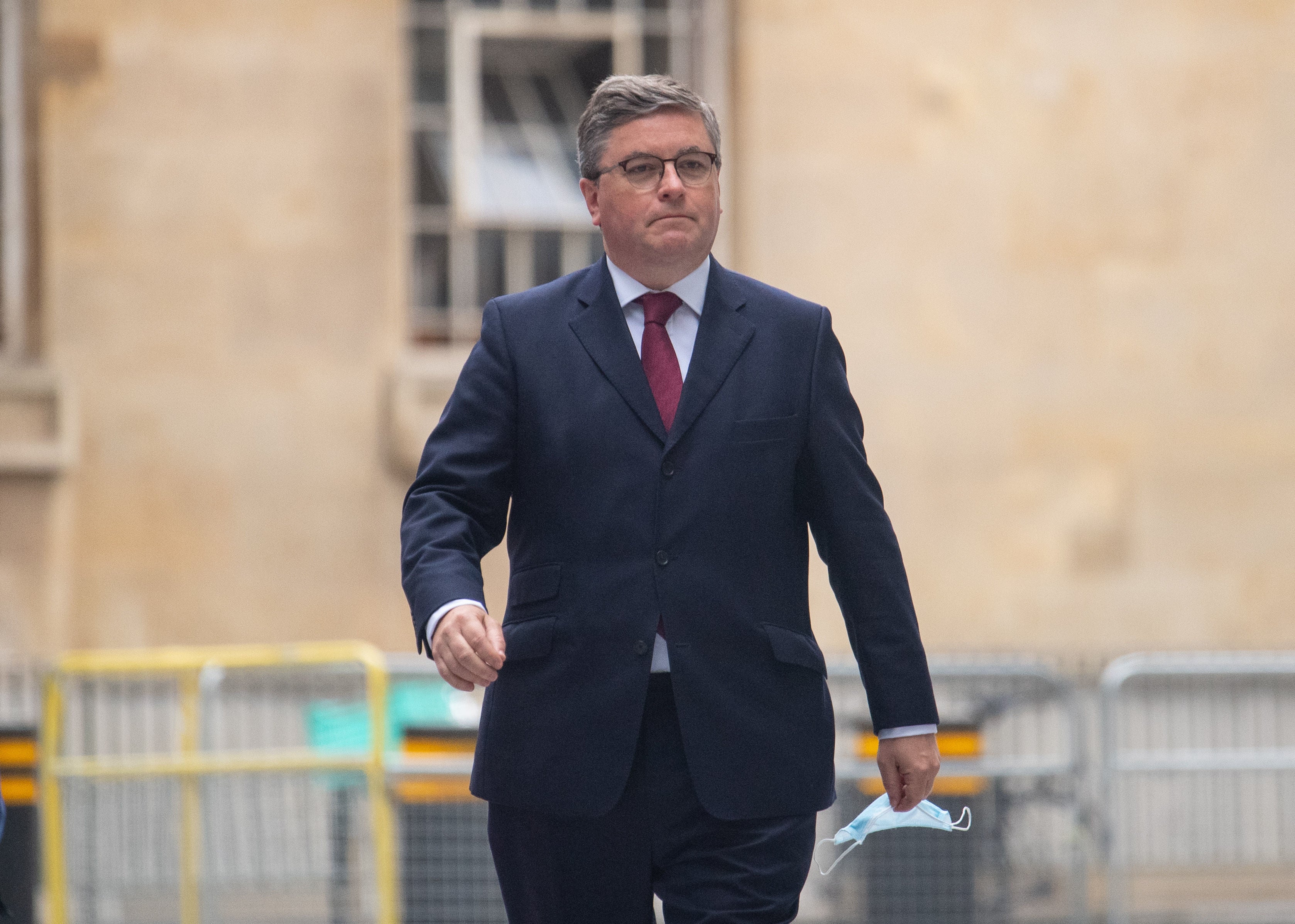Anger at ‘merry-go-round’ of justice secretaries as Dominic Raab inherits ‘broken system’
The eighth justice secretary in a decade faces a ‘crisis in criminal justice’, Lizzie Dearden writes

Legal groups have hit out at the “merry-go-round” of justice secretaries after Dominic Raab became the eighth politician to hold the post in a decade.
The latest change comes amid record court backlogs, which are leaving victims waiting years for justice, and a struggle to increase the prosecution rate in England and Wales from just 7 per cent of all crimes.
Despite the stark figures and other longstanding issues, which include reoffending and the problem of violence inside prisons, the role of justice secretary has been among the most disrupted under the Conservatives.
Only the Department for Digital, Culture, Media and Sport has seen more secretaries of state at its helm, clocking up its tenth since 2010 in Wednesday’s reshuffle.
Many professionals working inside the criminal justice system view the frequent leadership changes as an insult to the gravity of the post, where they would like to see expertise and continuity.
Chris Grayling, who oversaw a disastrous part-privatisation of probation services that is now being reversed, remains the longest-serving justice secretary of the past decade with his term of two years and eight months.
At the other end of the scale, David Lidington lasted just six months in 2017 before being moved to a post vacated by a disgraced minister.
The sacking of Robert Buckland, a former barrister who had been widely respected by professionals in the criminal justice system, came as a shock to many.
His successor, Dominic Raab, had worked briefly as a solicitor before becoming a government legal adviser. Raab has been outspoken in his criticism of the Human Rights Act, which is currently undergoing an official review.
The anonymous legal author known as the Secret Barrister wrote on Twitter that the appointment was “proof, if ever it were needed, that this government is happy to watch the justice system burn”.
Peter Dawson, director of the Prison Reform Trust, urged Mr Raab to “leave politics at the door” in order to fix the “broken system he is inheriting”.
He said: “For most people working in criminal justice, their work is a vocation, built on expertise and accumulated wisdom. The contrast with the merry-go-round of ministers shifted in and out of the Ministry of Justice is stark.

“It has produced far more by way of policy promises than any actual change on the ground.”
Frances Crook, chief executive of the Howard League for Penal Reform, said issues across the justice system “have not been helped by the merry-go-round of justice secretaries in recent times”.
“Not one in the last decade has been able to make a mark on the scandalous state of our prisons, for example,” she added. “It remains to be seen whether Mr Raab can succeed where so many others have failed. He will need to challenge the government's current fixation on expanding the prison estate and locking prisoners in their cells for longer, if so.”
Derek Sweeting QC, chair of barristers’ association the Bar Council, said the justice system was facing unprecedented challenges, adding: “As we welcome the eighth politician in the last 10 years to play this vital role, the need for a consistent and a strong voice in government for our justice system could not be greater.”
The Law Society, which represents solicitors, said Mr Raab was taking the helm at a “pivotal time”.
Its president, Stephanie Boyce, added: “Backlogs continue to bedevil the courts and some criminal trials are delayed until 2023, leaving victims, witnesses and defendants facing long delays in securing justice.
“With the rule of law and access to justice firmly in the spotlight, and with the spending review on the horizon, we hope the new lord chancellor will play a key role in advocating for sustained investment across the entire justice system.”
On Tuesday, the head of the national policing watchdog said the criminal justice system was “in crisis” and warned of “justice being denied”.
“The crisis in criminal justice has gone on for far too long,” said Sir Thomas Winsor, HM chief inspector of constabulary. “If we are to break the cycle of offending we need to have a sound rehabilitation system in place … in too many respects the promises of rehabilitation are not kept.”
The government announced a “royal commission on criminal justice” in 2019, which it said would “review and improve the efficiency and effectiveness of the criminal justice process”.
But work is not believed to have started, and no deadline has been given.






Join our commenting forum
Join thought-provoking conversations, follow other Independent readers and see their replies
Comments